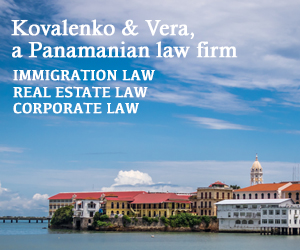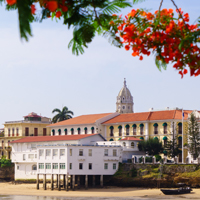Public Transportation in Playa Blanca
Summary: Mastering the public transportation system in Playa Blanca is a crucial aspect of adapting to life there. This article provides a detailed overview of the available local transit options.
Playa Blanca, is a picturesque coastal town known for its stunning white-sand beaches and resort-style living. When it comes to public transportation, the options are somewhat limited compared to a bustling metropolis. The town does not have an extensive public transit system like you would find in larger cities, but there are a few modes of transportation available for residents and visitors. These include local buses, known as "colectivos," and taxis. For those considering a move to Playa Blanca, it's worth noting that while public transportation can be used for basic travel, having a car might be more convenient for day-to-day activities and exploring the surrounding areas.
Local Buses (Colectivos)
The local buses, or colectivos, are a common sight in Playa Blanca. They are an affordable way to travel short distances within the town and to nearby communities. The colectivos typically operate on a fixed route with designated stops, but they are known for their flexibility, often stopping to pick up and drop off passengers along the way. The cost of a ride is relatively low, making it an economical choice for residents and tourists alike. However, the schedules can be irregular, and the buses may not always be available late at night or on Sundays. While the colectivos are generally safe, it's advisable to be cautious with personal belongings, especially during peak hours when they can become crowded.
Taxis
Taxis in Playa Blanca offer a more private and direct form of transportation. They can be hailed on the street or pre-booked by phone or through a hotel. Taxi fares are typically higher than bus fares but still reasonable. They provide a convenient option for those looking to travel at their own pace or when public buses are not running. Taxis are considered safe, and drivers are usually friendly and willing to share local knowledge with passengers. It's recommended to agree on the fare before starting the journey to avoid any confusion upon arrival at your destination.
Car Rentals
For expats and visitors who prefer the freedom to explore beyond the town's limits, car rentals are available in Playa Blanca. Renting a car provides the flexibility to visit nearby attractions, such as the Valle de Antón or the bustling city of Panama City, without being tied to public transportation schedules. While driving in a foreign country can be daunting for some, the roads in and around Playa Blanca are generally well-maintained, and traffic is less hectic than in larger cities. Car rental agencies offer a range of vehicles to suit different needs, from compact cars to SUVs suitable for rougher terrain.
Walking
Playa Blanca is a relatively small and walkable community. Many of the resorts, beaches, and local amenities are within walking distance for those living in or near the town center. Walking is not only a healthy and environmentally friendly way to get around, but it also allows residents and visitors to enjoy the beautiful scenery and warm climate that Playa Blanca has to offer. Sidewalks and pedestrian areas are generally well-maintained, making it safe for individuals and families to walk to their destinations during the day. However, at night, it's wise to be cautious as lighting can be sparse in some areas.
In conclusion, while public transportation in Playa Blanca, Panama, is limited to local buses and taxis, these options can be sufficient for basic travel needs. Expats and visitors may find that having access to a car or renting one occasionally provides the convenience and flexibility needed to fully enjoy the area. Walking remains a viable and pleasant option for getting around the town itself. Whether you're an expat planning to move to Playa Blanca or a visitor looking to explore, it's worth considering your transportation options to ensure a comfortable and enjoyable stay.
About the Author
 Betsy Burlingame is the Founder and President of Expat Exchange and is one of the Founders of Digital Nomad Exchange. She launched Expat Exchange in 1997 as her Master's thesis project at NYU. Prior to Expat Exchange, Betsy worked at AT&T in International
and Mass Market Marketing. She graduated from Ohio Wesleyan University
with a BA in International Business and German.
Betsy Burlingame is the Founder and President of Expat Exchange and is one of the Founders of Digital Nomad Exchange. She launched Expat Exchange in 1997 as her Master's thesis project at NYU. Prior to Expat Exchange, Betsy worked at AT&T in International
and Mass Market Marketing. She graduated from Ohio Wesleyan University
with a BA in International Business and German.
Some of Betsy's articles include 12 Best Places to Live in Portugal, 7 Best Places to Live in Panama and 12 Things to Know Before Moving to the Dominican Republic. Betsy loves to travel and spend time with her family. Connect with Betsy on LinkedIn.
Additional Information:
- Expat Guide to Playa Blanca
- Healthcare & Health Insurance in Panama
- Best Places to Live in Panama
- Real Estate in Panama
- Pros and Cons of Living in Panama
- Pros and Cons of Living in Panama 2025
- 2025 Guide to Moving to Panama
- More Advice about Retiring in Panama
- Members Talk about the Cost of Living in Panama



